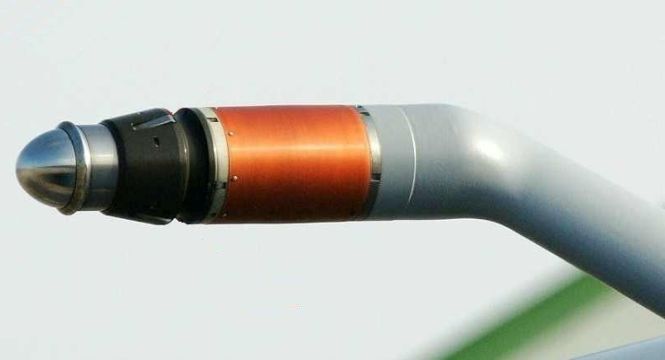New Delhi: The Pakistan Army elite has sounded the warning bell for the beleaguered Nawaz Sharif government. At the Corps Commanders meeting on 14th October, the animosity towards the Prime Minister and his team was evident.
The terse statement that came out made it clear that that the powerful `corner-plot-walas` blame the PMO for the leak to Dawn.
They said that the article is a breach of national security and termed Cyril Almeida`s information as "false and fabricated."
However, they did not clarify why a false and fabricated story could endanger national security.
The Army gave the Sharif government five days to find out the source that `fed` the information to Almeida about the crucial October 3rd meeting.
Almeida`s report had minute details and it was later backed by the editor of Dawn who said that the facts were checked and rechecked. During the five days that the Sharif government had to come up with a plausible explanation, the PMO bungled by first putting Almeida on the Exit Control List and then withdrawing it.
It fielded Interior Minister Chaudhury Nisar to awkwardly explain its stand.
Meanwhile, almost the entire international public opinion favoured Almeida and press freedom.
Whoever planted the information on Dawn wanted it to appear that Nawaz Sharif and his brother Shahbaz Sharif, the Chief Minister of Punjab province, were knights in shining armour wanting to put terrorists behind bars but it was the Army that was preventing it.
As one journalist on a TV show said, "Inki capacity Chotu gang ko pakadne kii hai nahi, yeh kahaan sey Jaish ko pakdenge? Gullu Butt they couldn`t catch who had one gun, they had to call the Army."
The reference is to small time gangsters, who are unafraid of the civilian governments in Pakistan. The insinuation was that it was preposterous suggestion in the Almeida report that Shahbaz Sharif had the gumption to have said what he did about the army protecting terrorists who Nawaz and Shahbaz wanted to crackdown on.
But TV commentators in Pakistan are now deducing that what actually happened was that after the success of Zarb-e-Azb, the military offensive against the Taliban in North Waziristan, and similar crackdown in Sindh, the Army was keen to move into the Punjab province.
The Sharif brothers have been in-charge in the province for seven to eight years. This region is crawling with `non-state actors` and has brought infamy to Pakistan.
A Seek and Destroy operation in Punjab would bring laurels to whoever undertakes the mission. If Pakistan Army Chief General Raheel Sharif was planning to launch this soon, clearly he had no plans to leave the mission in two months for somebody else to handle. The elaborate public relations campaign to boost the Army Chief`s image did not indicate that Sharif would go anytime soon.
Also, Nawaz Sharif is over anxious on choosing his man as the next Chief of Army Staff.
That has always been a thing with Nawaz. He messed up in choosing Pervez Musharraf. He would want an Army Chief, who stays in the barracks and is not seen as the `Upholder of National Prestige`.
Nawaz Sharif`s family is under the Panama leaks cloud. The family believes that the continuous leaks originate from GHQ.
In Pakistan, everything is a conspiracy. Then there is Imran Khan threatening a massive dharna from 30th October. He has said that anybody but Sharif is acceptable to him. That has led to rumours whether Shahbaz Sharif is a contender as he is the only senior family member whose name doesn`t figure in Panama papers.
But not to be outdone, there are those who say Shahbaz`s mother-in-law figures in the list and that is being touted by some elements in the media cell close to the PMO.
Wheels within wheels. Islamabad is now bracing itself for the inevitable. There was a gossamer coup of 2014 where Raheel Sharif took charge of foreign policy and security matters but left the rest to Nawaz.
But now the distance between PMO and GHQ is too vast to be bridged.
Raheel Sharif retires on 30th November and speculations were rife whether he would get an extension or fade away into the sunset.
But the fact is that a General is a General till the day he superannuates. Especially so in Pakistan. Nawaz Sharif probably miscalculated that Raheel was a lame duck. If anything Raheel is now a wounded tiger, a dangerous beast.
While the print media in Pakistan is still leaning on supporting Dawn and by and large supports the elected government, television studios and the Urdu media have started the migration towards the Army.
Talking heads have begun laying the blame for Pakistan`s isolation in the world to Nawaz Sharif. Bilawal Bhutto`s slogan "Modi ka jo yaar hai, gaddar hai gaddar hai" is played on almost all channels, though Bilawal has tried to distance himself from the slogan off late.
Long time journalists now question why Nawaz Sharif did not speak at the UN about the capture of Kulbhushan Yadav, a RAW operative who is said to have admitted working to destabilise India.
One expert even offered a cash award if anybody could get Sharif to mention Kulbhushan Yadav`s name. So, in addition to being anti-army Sharif is blamed of being pro-India. A lethal combination for any Prime Minister of Pakistan.
The word is out in corridors of power and the marketplace that Nawaz Sharif`s days are numbered. But Sharif still might have some aces up his sleeve. He is a long time player of the military versus government game.























